Key Takeaways:
- One of the world’s largest retailers, Walmart, is laying the groundwork for further inroads into online commerce – securing a substantial investment from Google in Flipkart (the India-focused online retail platform it controls) and introducing a new, immersive shopping experience, Walmart Realm.
- Polyester recycling company Syre has successfully raised $100 million, while AI-powered shopping assistant for pre-owned products Faircado raised €3 million – demonstrating the need for sustainability solutions to span both short-term decisionmaking and longer-term industrial transformation.
Join the open call for presenters at this year’s 3D Tech Fest!
After hosting a full day of 3D Tech Fest for the last two years, The Interline will be partnering with the organisers, Alvanon, again in 2024 to help bring the “physical-digital revolution” to life.
From now until June 14th, the 3DTF team are accepting proposals for presentations from across the fashion industry, with a particular emphasis on innovation, impact, and the increasing influence that digital culture has on physical products, as well as the hugely important role that digital design plays in shaping the physical world.
If you have an original perspective you would like to share as part of the premiere 3D-focused online event for 2024, you can submit your proposal via the 3D Tech Fest form here.
We look forward to seeing our readers represented as both presenters and audience members for 3DTF later this year!
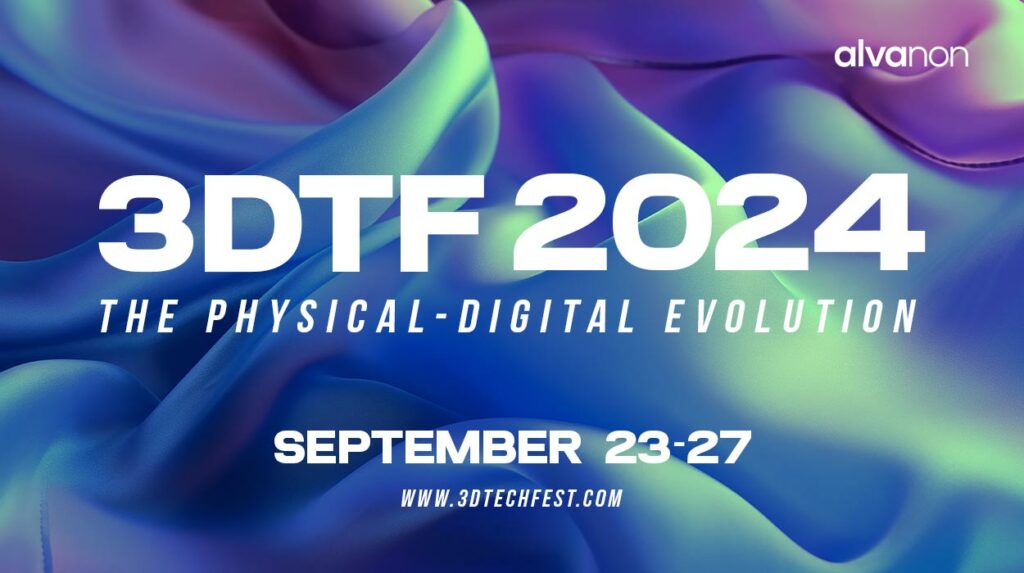
Big retail continues to corner engagement and expansion in eCommerce.
When you think of those leading the pack when it comes to experimenting with different customer-facing technology, Walmart might not be where your mind would immediately jump. It’s a name that’s synonymous with success, but many of its technology initiatives have flown under the radar.
But it’s become clearer than ever this week that the mega-retailer sees technology-enabled engagement and expansion as pillars of its future relevance across existing and new online channels. First, Flipkart, the Walmart-owned Indian e-commerce marketplace, will receive a $350 million investment from Google, taking the value of the e-commerce firm to $37 billion.
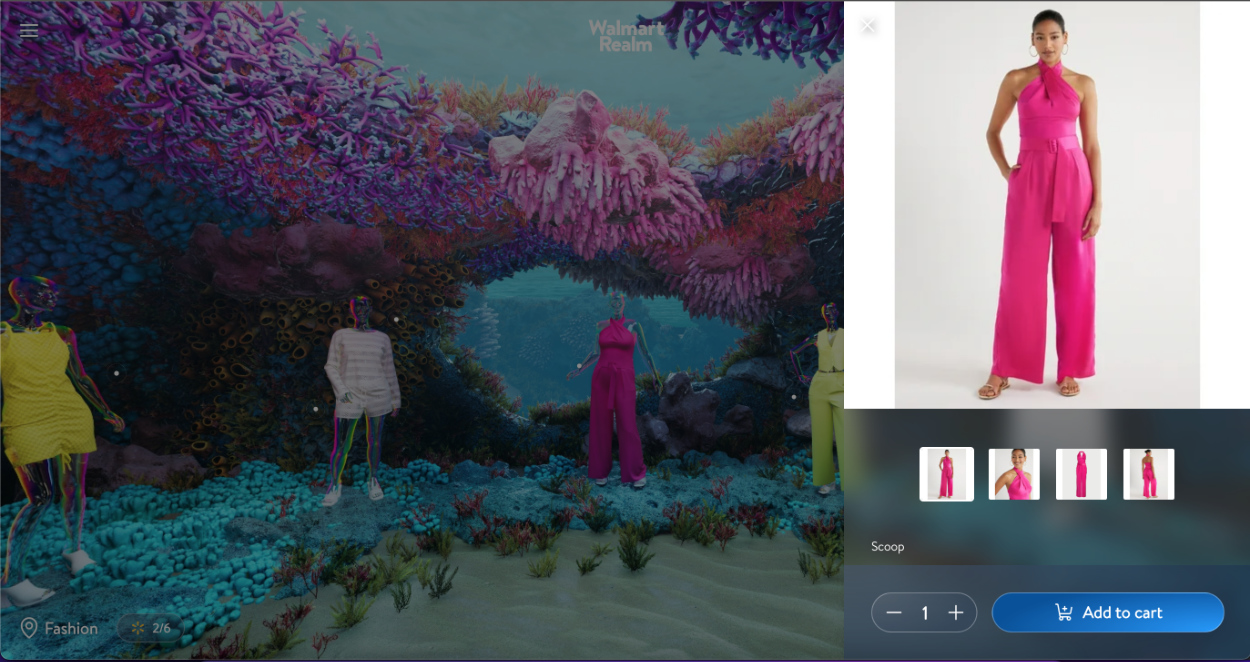
The investment is part of a nearly $1bn funding round initiated by Flipkart in December last year. According to a statement, Flipkart has said that “Google’s proposed investment and its Cloud collaboration will help Flipkart expand its business and advance the modernisation of its digital infrastructure to serve customers across the country.” With Google’s tech prowess and Walmart’s retail savvy, Flipkart is now better equipped to compete with Amazon’s dominance, and also more suited as a proving ground for more globalised innovation.
Since Walmart’s acquisition of Flipkart, there has been ongoing speculation about its potential IPO. With India being one of the fastest-growing internet markets, Google aims to strengthen its presence in the expanding e-commerce sector, exploring new opportunities in digital payments, cloud services, and AI. While Amazon has surpassed Flipkart in Gross Merchandise Value (GMV) and order volume until now, Flipkart has focused on innovation, enhancing its gamification features, its loyalty program, augmented reality (AR) for fashion, and chatbot support – opening up its opportunities for engagement and sales.
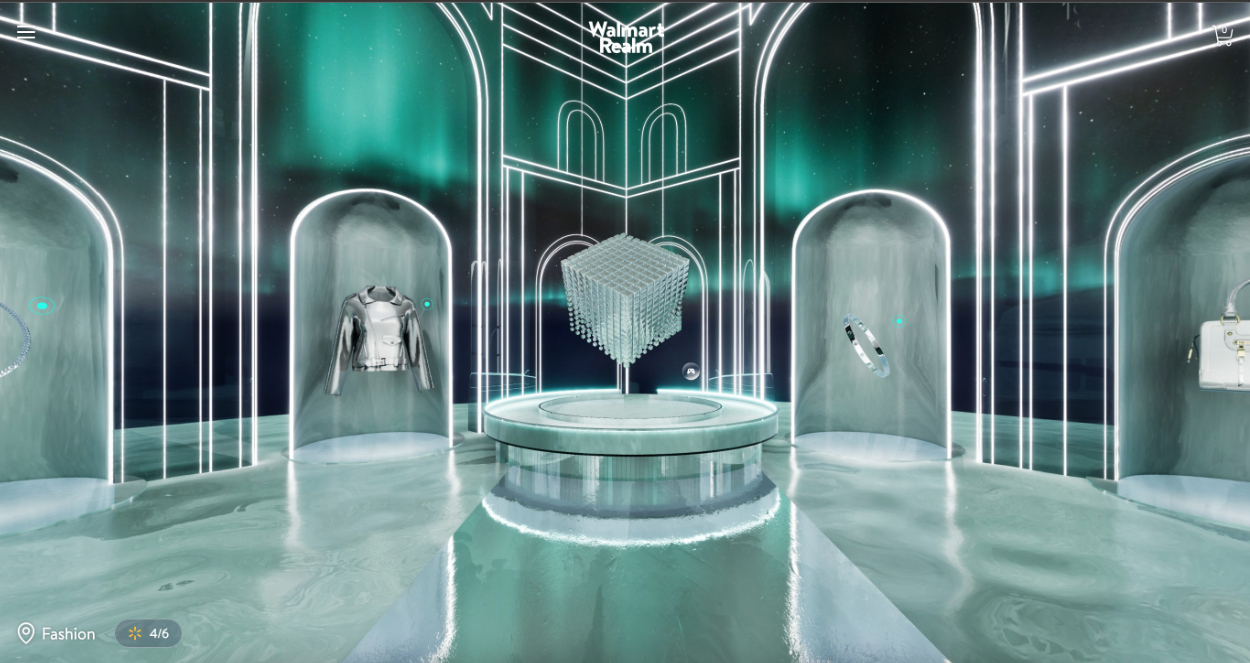
Alongside this, on Wednesday, Walmart introduced a new immersive online shopping platform called Walmart Realm, designed to gamify the consumer shopping experience. This platform offers three distinct shopping environments, each inspired by social trends and curated by social media influencers. The realms include the underwater world of “So Jelly”, curated by @Maiphammy, the vintage Americana-themed “Y’allternative”, by @makenzieandmalia, and the beauty and fashion-focused “Go Chromatic”, by @the.navarose. The tagline for the new experience: “That’s my realm,” emphasising its strong focus on associating online shopping with the massive growth of online communities.
Each of the three experiences was crafted using technology from the virtual retail platform Emperia. When users enter any of these virtual shops, they are transported into a 3D environment with custom soundtracks and high-fidelity visuals. Shoppers can collect ‘Sparks’ (tokens resembling Walmart’s logo) which can be exchanged for rewards, and to purchase products in beauty, fashion, and home categories that match each world’s feel. William White, Walmart’s chief marketing officer, wrote on LinkedIn that Walmart Realm “pushes boundaries as a first-of-its-kind digital shopping experience…It’s fantastical, it’s inspirational, and simply put, it’s a lot of fun.”
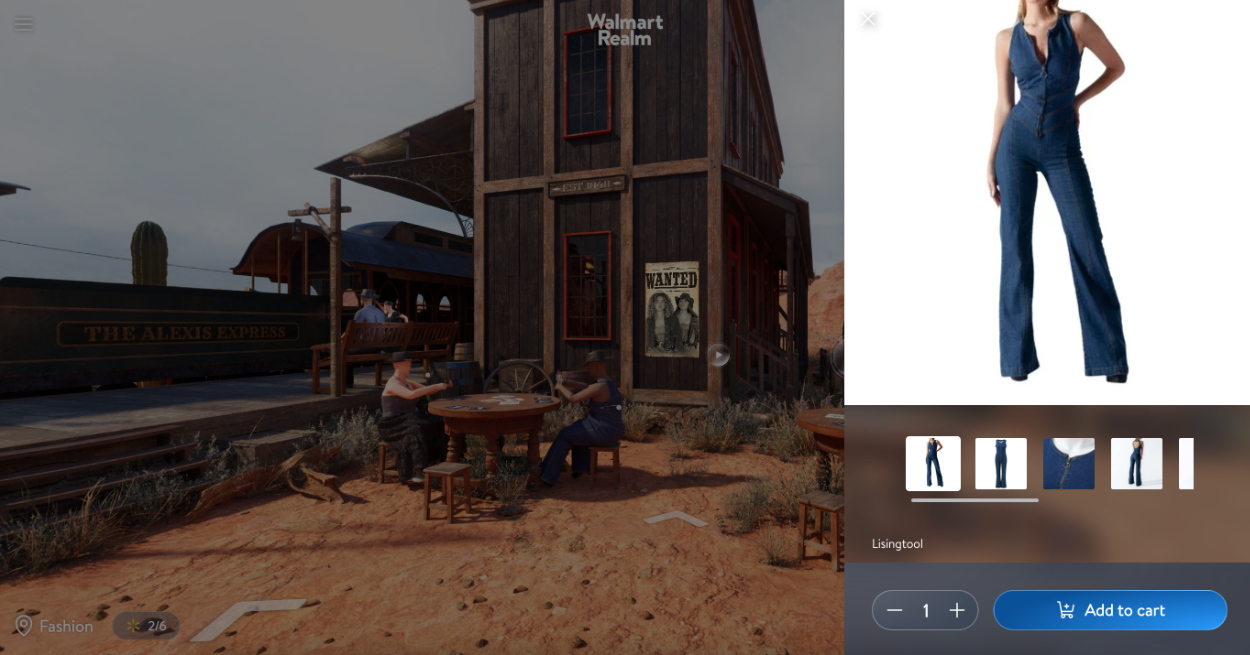
The common thread in these two stories is their focus on innovation and gamification, which can be termed “immersive commerce.” Walmart believes this represents the future, distinct from the now-taboo “metaverse” label. This new approach leverages the conceptual values and strategic elements of a digital world, but its ultimate goal is improving the standard e-commerce experience.
And this is still just the beginning. Earlier this year, Walmart made it possible to sell physical goods directly to users inside Roblox through their Walmart Discovered platform. The target audience there is clear: Gen Z. “Shopping for virtual items is already an important element of how people engage and express themselves on Roblox daily, so our goal is to gather feedback, test the technology, and learn what resonates with Gen Z customers the most when it comes to shopping for physical items,” Roblox vice president of economy Enrico D’Angelo said in a statement. Walmart was the first retailer to convert its wholesale presence into a compatible e-commerce channel on Roblox, but more than 300 brands have been experimenting with its in-game advertising and sales opportunities. Walmart executives are also thinking of life beyond Roblox, hinting at plans to explore various virtual world experiences like Fortnite and Minecraft. But with Walmart Realm, this kind of shopping experience, usually reserved for Gen Z, will be coming to all very soon.
Sustainability solutions: immediate impact and ambitious future goals
Earlier this week, textile recycling startup Syre announced it secured $100 million in Series A funding to expand its operations. Syre aims to aid the textile industry’s decarbonisation drive and waste reduction push through textile-to-textile recycling – focusing initially on polyester – a synthetic that contributes to up to 40% of the fashion industry’s carbon emissions.
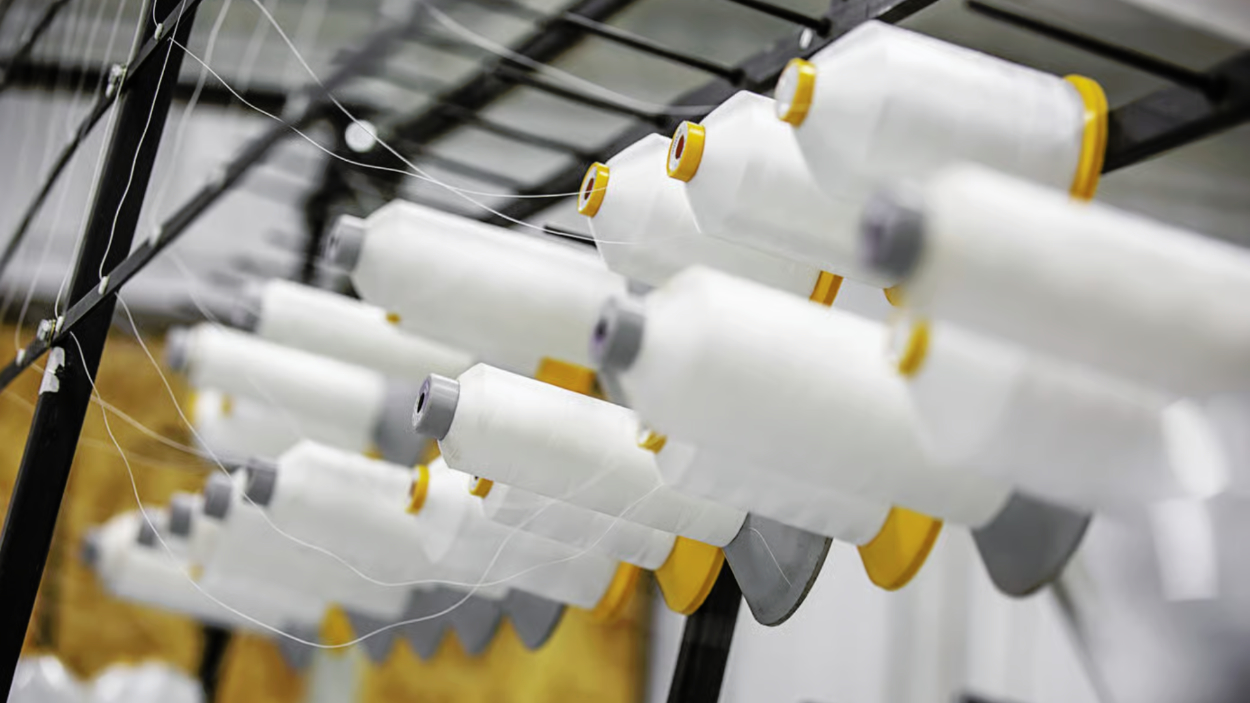
The company is building its first blueprint production plant in North Carolina that is expected to be operational by the end of the year. Syre then has plans to expand to 12 plants worldwide within the next decade, with a goal of producing over three million metric tons of recycled polyester and reducing more than 15 million metric tons of carbon emissions. The company stated that the new funding will be used to build its U.S. blueprint plant and to prepare for the establishment of its first two textile-to-textile recycling plants. Syre has shortlisted Vietnam and Iberia as potential locations for these plants, both strategically positioned within the textile supply chain. The specific site selection process is ongoing, with construction expected to commence in 2025.
The Interline will be speaking with a senior executive from Syre very soon, to quiz the company on its philosophy and on the practical considerations of industrialising recycling at a massive scale.
In more news related to both fashion technology funding and sustainability, AI-powered second-hand shopping assistant Faircado has closed a €3 million Pre-Seed funding round. The Berlin-based company has developed a browser extension that streamlines the purchase of pre-owned items, automatically suggesting second-hand alternatives while shopping online by leveraging a database of over 60 million products from 50 partners, including eBay, Back Market, Grailed, Rebuy, and Vestiaire Collective. Currently, the extension supports over 1,600 websites, from Amazon and Zalando to Patagonia and Apple, offering consumers comparable items across fashion, electronics, and books.

Both investments could be critical for helping to build out the industrial and the consumer sides of fashion’s circular economy, something that will be essential for achieving climate neutrality by 2050, according to the European Commission. Syre’s technology solution is undoubtedly a major step in line with that long-term goal, but its impact is not likely to be felt immediately. In contrast, Faircado offers an instant solution that’s easily accessible for customers and that aims to break down the fragmentation that exists between first and second-hand commerce. Plus, it offers a compelling incentive: save the planet while saving money. Of course the nature of the solution lends itself to being easily accessible, given that it is a layer of technology that is easily integrated into the consumer’s shopping experience. But this is perhaps something that Syre and related companies should consider in their strategies: how to make things as easy as possible for the customer, so that it almost becomes second nature. For example, it would be ideal if polyester-recycling points became as common as other waste recycling points, given that Syre aims to also tackle post-consumer waste as well as industrial waste.
There is an opportunity here for textile recycling companies to reshape consumer behaviour by making sustainable practices as easy and accessible as possible. By strategically locating clothing-recycling points in high-traffic areas and integrating them into existing waste management infrastructure, they could normalise recycling habits. And drawing from the digital world – there could be a way to gamify this behaviour too, using mobile apps to locate nearby recycling points and incentivising participation through rewards programs.
This future feels within reach, suggesting that the transition from digitally-enabled circularity to real-world application may well be imminent.
